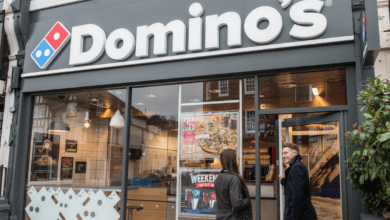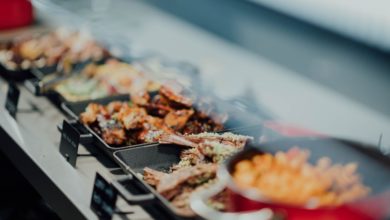Elevating guest experiences through technology and data, both on and off-premise
Josh Todd, chief marketing officer at SevenRooms, discusses the importance how technology and data can help operators capitalise on the growth in the food delivery market

In an era where consumers are watching every penny more carefully, the good news is that consumers are still prioritising quality experiences and are seeking excellence in exchange for their hard-earned money. It’s crucial that restaurants are adapting to meet these new expectations given the increased competition, and operators need to evolve not only to keep up, but to stay ahead. And where resources – both human and financial – are stretched further than ever, data and technology are increasingly becoming the means by which restaurants can keep up and continue to provide better, more personalised interactions to guests.
Prioritising personalisation
Delivering a memorable experience each and every time a guest returns is now necessary to cultivate loyalty. Time is fast becoming a luxury in the restaurant business, however, and technology that can shoulder the burden and efficiently power personalisation is the way forward. The best technologies work seamlessly behind the scenes to collect and surface up the right data, at the right time, to the right person, without operators having to lift a finger.
Everything from preferred dishes and drinks, table seating requests, allergies, average spend can be noted and leveraged by both front and back-of-house staff upon each visit. Having this important knowledge can help staff proactively shape their experience based on what they know, rather than having to guess. For a guest, too, feeling welcomed and recognised can go a long way to make a dining experience feel special – it’s a great feeling for a waiter to remember your name or your favourite cocktail, for example. Sharing notes across multiple restaurant locations is crucial too – should a repeat customer with a specific seating preference visit a different location, the staff there should be empowered to maintain the level of experience they would have become accustomed to.
Direct is best
While third-party reservation platforms can drive bums in seats, it is even more important for restaurants to build direct relationships with their guests. According to a recent SevenRooms survey, 38% of UK consumers most often discover new restaurants through friends, family, or coworkers, while just 7% discover through OpenTable and 4% through Resy. While it may appear that new diners come from Marketplaces, they are not in fact driving guests to your restaurant. When booking, 1 in 3 (32%) UK consumers call restaurants directly and almost 1 in 3 (31%) book on a restaurant’s website. And with significant fees charged alongside an insistence that they retain guest and booking data, third parties should by no means be the only way in which guests find and interact with operators.
The only way in which consumers and restaurants can both get the best end of the deal is through a direct, transparent and personal relationship. It allows restaurants to capture vital information that lets them create a tailored experience that keeps guests coming back time and again. Your guests expect genuine relationships and technology has finally caught up with the vision allowing operators to increase those direct touchpoints with guests which means increasing the likelihood of converting them into repeat customers through personalised experiences.
Out of sight, not out of mind
The UK food delivery market is expected to reach a total value of £14.4bn in 2023. Clearly, there is much opportunity to be had by capitalising on the continued growth in takeaway and delivery, but with customer interactions largely reduced to tipping the delivery driver on their doorstep or a quick hello for a collection order, operators will have to go the extra mile to extend their hospitality beyond the four walls of their venue. Just because a guest isn’t dining on-premise doesn’t mean the interaction with the restaurant should be any less meaningful or personalised. Finding ways to wow a guest during the online order experience, whether it’s through a personalised discount for a starter or knowing just the right special to recommend, will help to create a deeper relationship with them, in turn driving loyalty.
For restaurants, delivery or online orders should be about more than simply getting food to a customer; it’s an opportunity to build a direct relationship with their guests. The ability to facilitate their own online ordering, collection and delivery services is key as this allows them to build and maintain more direct and personalised relationships with their customers. Each time someone places an order, there are new opportunities to gain useful new insights about that guest. These data points can tell an operator something new about a guest’s experience, including likes, dislikes, nice-to-haves and necessities, which can be used to improve upon the experience next time they take away or even dine in.
Customer interactions which maximise the value you provide your guests and make them feel individually important are key to fostering loyalty and driving revenue. Making personalisation a key priority, and making the most of the technology and data at your disposal, means operators can make more informed guest experience and business decisions that maximise revenue, whether on or off-premise. With consumer priorities changing as they adapt to rising cost of living, under-utilising this guest data is more wasteful than ever. Now is the time to embrace these opportunities in order to foster brand loyalty and drive an increase in revenue.
















